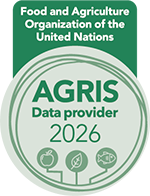A sustainability assessment of organic dairy sheep systems in castilla la mancha (spain).
Resumen
Sustainability of the organic farming dairy sheep systems in the central region of Spain (Castilla-La Mancha) has been assessed using an adaptation of the Framework for the Evaluation of Management Systems Incorporating Sustainability Indicators (MESMIS). The critical points and indicators that determine the organic dairy sheep systems were identified. These indicators were classified according to attributes and sustainability dimension to their aggregated indexes. The sustainability was evaluated in each of the 31 sampled farms, which were then grouped into three production systems (Family Subsistence, Commercial Semi-Intensive and Family Commercial). The Family Commercial system presented the best global sustainability index, highlighting the sustainability attributes of productivity and adaptability, as well as the environmental conservation dimension. The Family Subsistence system was located in an intermediate situation, presenting some resemblance to the Family Commercial System, but it was still considerably less productive. The Commercial Semi-Intensive system had shortcoming attributable to its degree of intensification and technical mismanagement. Self-weaknesses were identified for each system and recommendations have been proposed for increasing their level of sustainability.



















